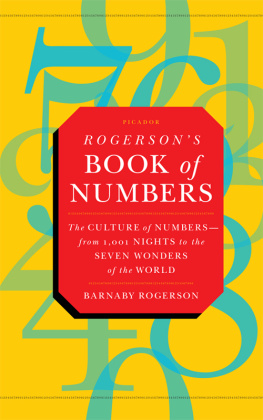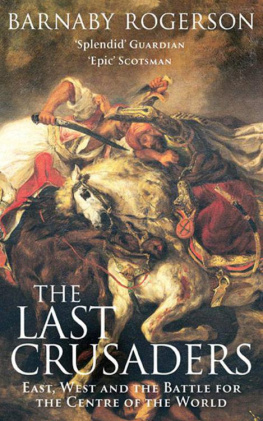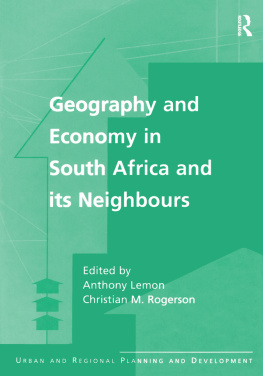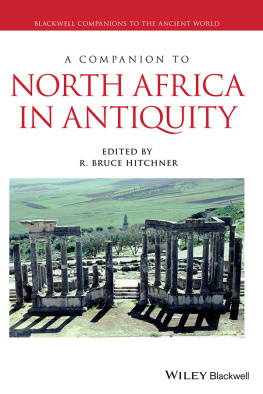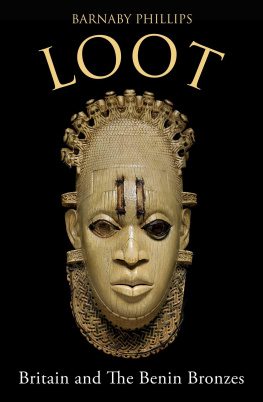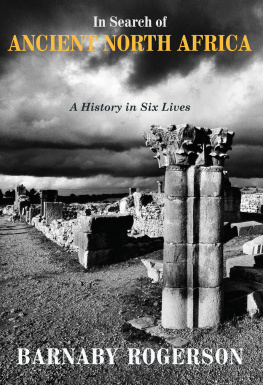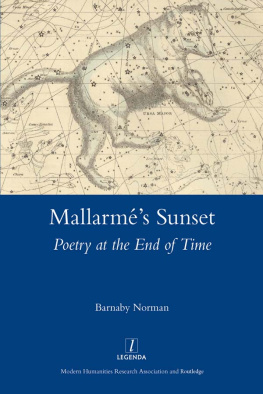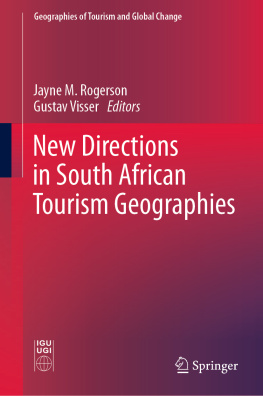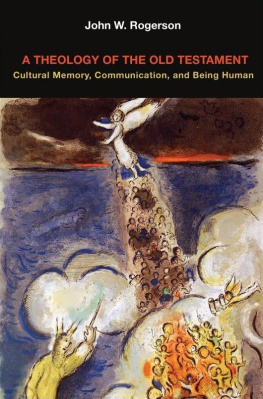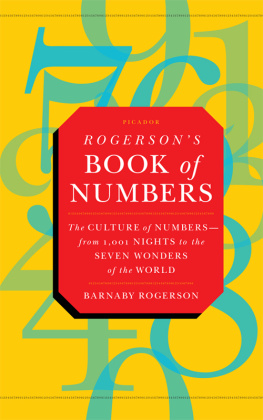Barnaby Rogerson - In Search of Ancient North Africa
Here you can read online Barnaby Rogerson - In Search of Ancient North Africa full text of the book (entire story) in english for free. Download pdf and epub, get meaning, cover and reviews about this ebook. year: 2017, publisher: Haus Publishing, genre: Science fiction. Description of the work, (preface) as well as reviews are available. Best literature library LitArk.com created for fans of good reading and offers a wide selection of genres:
Romance novel
Science fiction
Adventure
Detective
Science
History
Home and family
Prose
Art
Politics
Computer
Non-fiction
Religion
Business
Children
Humor
Choose a favorite category and find really read worthwhile books. Enjoy immersion in the world of imagination, feel the emotions of the characters or learn something new for yourself, make an fascinating discovery.
- Book:In Search of Ancient North Africa
- Author:
- Publisher:Haus Publishing
- Genre:
- Year:2017
- Rating:4 / 5
- Favourites:Add to favourites
- Your mark:
- 80
- 1
- 2
- 3
- 4
- 5
In Search of Ancient North Africa: summary, description and annotation
We offer to read an annotation, description, summary or preface (depends on what the author of the book "In Search of Ancient North Africa" wrote himself). If you haven't found the necessary information about the book — write in the comments, we will try to find it.
In Search of Ancient North Africa — read online for free the complete book (whole text) full work
Below is the text of the book, divided by pages. System saving the place of the last page read, allows you to conveniently read the book "In Search of Ancient North Africa" online for free, without having to search again every time where you left off. Put a bookmark, and you can go to the page where you finished reading at any time.
Font size:
Interval:
Bookmark:

IN SEARCH OF ANCIENT NORTH AFRICA
In Search of Ancient North Africa
A History in Six Lives
BARNABY ROGERSON
with photographs by Don McCullin

First published in 2017 by
Haus Publishing Ltd.
70 Cadogan Place, London SW1X 9AH
www.hauspublishing.com
Copyright Barnaby Rogerson 2017
All photographs copyright Donald McCullin
All photographs reproduced by kind permission of Donald McCullin
Printed in the United Kingdom by CPI
ISBN: 978-1-909961-54-8
eISBN: 978-1-909961-55-5
The right of the author to be identified as the author of this work has been asserted in accordance with the Copyright, Designs and Patents Act, 1988
A CIP catalogue record for this book is available from the British Library
Typeset in Garamond by MacGuru Ltd
All rights reserved
For Mary and Mary
Dont tell me how educated you are, tell
me how much you have travelled
Muhammad ibn Abdullah
Introduction
T his is a book inspired by picnics, for I have now been lounging beside the ruins of ancient North Africa for forty years. I have always liked to affect the camp-clutter of an oriental traveller, and so my picnics are stage-managed, with local rugs thrown under the shade of an ancient olive tree. Food is displayed on second-hand metal trays and in brand-new Berber pots bargained for in the souks and alongside the road. They serve as platters for soft cheeses, juicy sliced tomatoes, piquant olives and freshly baked flat breads. Smaller bowls can be filled with olive oil (in which to dip hot bread), cumin (in which to roll a boiled egg) and harissa to freshen up sardines or tuna served from out of their own tins. Fruit, especially the honeydew melons available during the summer months, are gutted of their seeds, sliced and served on the edge of a knife. Dates are made into an additional treat by extracting the stone and replacing it with a dried almond.
Over the last forty years, I have travelled with my family, then student friends, then my young daughters, as well as with journalists, artists, photographers and hundreds of fee-paying clients. In the process, I have come to absorb an enormous amount of North African history, which has been recycled into guidebooks, histories and lectures. But as I come towards the end of my working life as a picnicker abroad, I realise that there are a handful of stories that will simply not go away. They refuse to be pinned into tidy narratives and have become immersed in this landscape. One of the reasons they remain so restlessly interesting to me is that I have never been able to sort them out, to resolve whether they were good or bad, tragic or pathetic, selfish or heroic, malicious or noble. So this is neither a history nor a travel book, but a journey into a landscape of ruins in order to tell the stories of half a dozen individuals whose lives are now clouded with far more opinion and myth than retrievable fact. In between these life stories, we explore a few ruins that tell tales of their own.
I have not set out to present a coherent historical narrative, but the six characters are arranged in such a way that they collectively follow a rackety chronological progression through a thousand years. Queen Dido was a sacrificial refugee. Hannibal was the greatest general of all time, and is paired with Masinissa, the Berber cavalry general who helped defeat him. King Juba II was made a prisoner of war as a child and became a compliant tool of the Roman empire. Septimius Severus was an unpromising provincial from Roman North Africa, born in Leptis Magna, who not only emerged as sole emperor of Rome but brought the entire Roman empire to its dazzling apogee. Our last hero was another unpromising-looking provincial from North Africa, an intellectual careerist who became a bishop and a saint. The writings of Saint Augustine still haunt the imagination of the West.
The individual destinies of these half-dozen North Africans still speak to our time. Their descendants face the selfsame choices today. Do you try to stay pure to your own culture, to fight against the power of the West with all your might? Do you first study and assimilate this other culture, in order to use its skills in your homeland, or even to conquer it later? Or will it turn you in the end from ally to slave? There are some tragic destinies that seem to light the way: the story of the puppet king who worked hand in glove with the great power to the north; the refugee coming from out of the Holy Land; the great fighter who will at last be ground into dust. Set these against the example of three North African men who worked the existing system so well that they not only managed to prevail, but also arguably changed the system for ever.
Three of my tragic heroes (Masinissa, King Juba II and Saint Augustine) are Berber, the native inhabitants of North Africa. The Berbers can usefully be compared to the Celts of the British Isles, for they are the indigenous people, who have both kept their own language pure (in the furthest lands of the West) but have elsewhere entirely absorbed and mingled their blood with the invaders. One of my heroes, Queen Dido, was a refugee who had no Berber blood in her at all, while two others, Hannibal and Septimius Severus, were descended from Phoenician families who had intermarried with Berbers over hundreds of years.
No Arab heroes star in this collection (though Moulay Idriss and Oqba ibn Nafi make a number of appearances), because I intend to write about them in a later work. They in turn will be followed by a collective portrait of another tragic group of heroes: Omar al Mukhtar, Abdel Krim, Abdel Kader, Ahmed Arabi and Ma al-Aynayn.
This book has also been influenced by my experience of travelling with other Westerners in the North African landscape. For I have watched with annoyance, which has gradually changed into amusement, how many European tourists and archaeologists act as if they own the classical past of North Africa. Ancient history seemingly belongs all to them. This is the long shadow of public policy in the colonial era, when the French and Italians presented themselves as heirs of the Roman legions, returning to restore evidence of their monumental past. They undertook magnificent campaigns of excavation and conservation that should always be honoured, but it is time that both shores of the Mediterranean now recognise their ownership. So my six chosen heroes of this landscape have been consciously chosen to represent classical North Africa, and not the familiar drumroll of Julius Caesar, Augustus, Trajan, Hadrian, Constantine and Justinian. I have also kept my eye out for the multiple interconnections that bound the culture of this region with the wider world, particularly the spiritual traditions of the ancient Near East.
My personal exploration of North African history started in 1976, when I was seventeen years old, and has continued, with no particular order or discipline, to this day. These journeys have been broken into many fragments: a ten-day walking expedition here, a four-day journalistic assignment there, as well as a number of three-month-long road trips. Taking the year I started on this book as a random example, I spent a week in the western desert of Egypt in February, five days in Carthage in November and sixteen days taking a history tour through south-east Algeria in October. The following year I was in Morocco for the last fortnight of May and in Algeria for the first fortnight in November. I now have six blue and red passports all decorated with Moroccan, Tunisian, Algerian, Libyan and Egyptian stamps, a working knowledge of every important historical monument between Casablanca and Cairo, and some very obscure ones in between.
Font size:
Interval:
Bookmark:
Similar books «In Search of Ancient North Africa»
Look at similar books to In Search of Ancient North Africa. We have selected literature similar in name and meaning in the hope of providing readers with more options to find new, interesting, not yet read works.
Discussion, reviews of the book In Search of Ancient North Africa and just readers' own opinions. Leave your comments, write what you think about the work, its meaning or the main characters. Specify what exactly you liked and what you didn't like, and why you think so.


